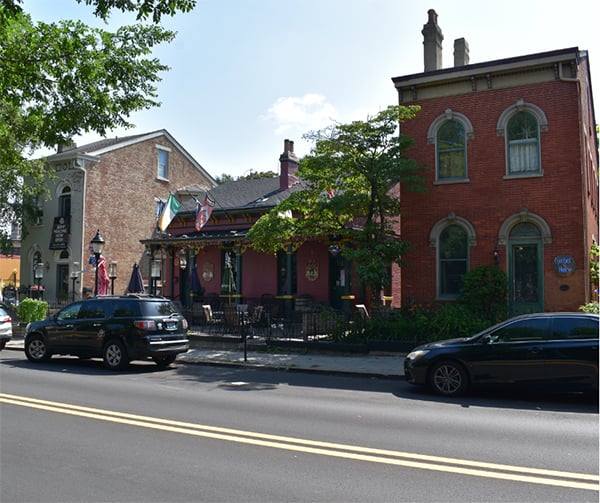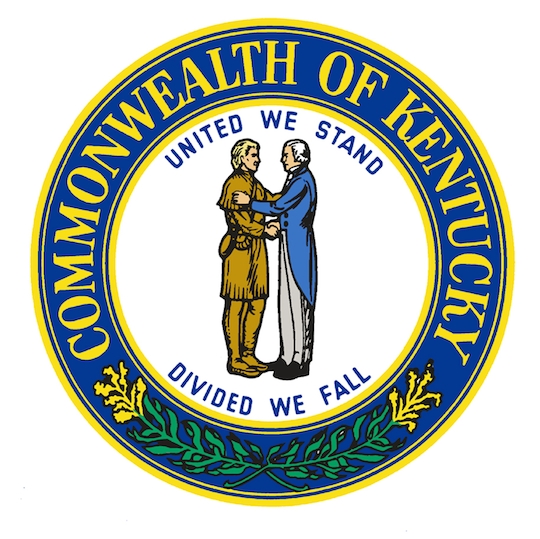My brother has been very successful in the barbeque restaurant business. (Full disclosure: I am a passive investor in his company.) Politically, he was always what I call a Rockefeller Republican, pro-business and progressive on social issues. He tended to vote Republican primarily because he wanted to pay less tax and viewed the GOP as the low-tax party.
So it was surprising when, in the summer of 2008, he called me and said, “John, you’ll be happy to know that Judy (his wife) and I are maxing out (contributing the maximum legal amount) to Obama’s campaign, and we’re voting for all Democrats this year.

“That’s great, Bob,” I replied. “What was your epiphany?”
“I finally figured out that if no one can afford barbeque, it doesn’t matter what my tax rate is,” he said.
I have told that story hundreds of times, because it makes an important point: The amount of taxes you pay depends on how much money you make, and the tax rate is not the only thing that determines your tax bill.
Kentucky Republicans are bound and determined to eliminate the state income tax. They have already cut it from 5% to 4%, and they enacted legislation to take it lower and eventually to zero. Many people will think this is fine, even when they are told that the state could lose a third or more of its revenue and inevitably be forced to raise money in other ways, like higher sales taxes.
The argument for lowering Kentucky’s tax rate is always the same: We are in competition for business with states like Tennessee that have no income taxes. Of course, as in many other cases, tax cutters ignore both reality and common sense.
As much as he would have liked to pay lower taxes, my father made business decisions because they would generate more revenue, not because they would lower his tax payments.
Underlying every argument for cutting taxes is the intuitively compelling suggestion that people make momentous life decisions based primarily on financial considerations. More specifically, proponents of lower taxes argue that businesses make decisions based on tax conditions. Neither is true.
Yes, sometimes very wealthy people make decisions that factor in tax rates. People sometimes move their legal residence to Florida because that state has no estate tax (neither does Kentucky) and no income tax. But do you really believe that someone with an income of $1 million would make a major life move just to save the $40,000 they would owe Kentucky? I’ve talked to many of them, and when you boil it down, they just wanted to have a warm place to visit in the winter.
Does anyone really believe that a business would make a multi-million or billion dollar decision in order to save even a few million on their taxes? According to the Tax Foundation, Tennessee has the 23rd highest corporate tax rate in the country. Kentucky’s is 34th. And all this time we thought we had to lower our personal income tax to beat the Vols! Really?
The Tax Foundation recently released its 2024 “State Business Tax Climate Index.” The top five (lowest corporate tax burden) include Wyoming, South Dakota, Alaska and Montana (Florida is the other). Not exactly economic powerhouses. Which five states are the “worst”? The highest corporate tax burdens are in New Jersey, New York, California, Connecticut and Massachusetts. Which states do you think have more corporate headquarters?
My father was a very good businessman. He built what was once the second largest public company in Kentucky. He did it when the top federal income tax rate was 70% and the corporate tax rate was as high as 52%. If you wanted to get rich or richer, you did what it took to bring in more money, BECAUSE the tax rate was high. You didn’t decide not to make another dollar because you could only keep 30 cents.
In other words, as much as he would have liked to pay lower taxes, my father made business decisions because they would generate more revenue, not because they would lower his tax payments.
So as the Kentucky General Assembly meets this year and there are the inevitable Republican efforts to lower tax rates, just remember this: It’s a useful and sometimes effective political move to push for lower taxes; it’s just not a valid economic strategy.
John Yarmuth served as U.S. representative for Kentucky’s 3rd Congressional District from 2007 to 2023. He was chairman of the House Budget Committee from 2019-2023. This commentary first appeared in The Kentucky Lantern.


















Response to Mr. Ruehl: We no longer live in pioneer days. The government should fix things for people when the private sector does not. A good example is the dire need for affordable housing in the region. Most home builders and renovators are in the business of creating housing beyond the ability of a lot of families to pay. Just look at what is happening inthe west end of Newport near the 4th St. bridge. Or in Ludlow where Fischer will be building hundreds of condos and single residences in the $350k-$400k range…. Lack of affordable housing leads to many other social problems that governments have to address. Government is not the problem. In fact, the private and public sectors should be working cooperatively. We need both in our communities!
Your argument that we (the state) cannot afford to cut income taxes is based on an fantastic assumption:
The government should fix things for people.
If there was some evidence that a government could spend tax money efficiently and help people without creating dependency, I may be inclined to agree with you. But anecdotal “evidence” that people want higher taxes doesn’t prove your point. There is strong competition for company headquarters. There is strong competition for jobs.
Any competitive advantage we can gain by lowering taxes should be taken advantage of – post-haste.
Governments are not the answer to our problems. In most cases, the over-spending and unnecessary layers of red tape actually cause more suffering. Less government and the subsequent less spending and subsequent less taxes is a good thing.
In the words of Charles Murray: “The pioneer didn’t demand that someone else look after him . . . there was an old fashioned philosophy in those days that a man was supposed to provide for his own and his future.”